What Is Seo And Ppc In Marketing?
Welcome to the world of digital marketing! Have you ever wondered how businesses get their websites to appear at the top of search engine results? Well, that’s where SEO and PPC come into play. So, what is SEO and PPC in marketing? Let’s dive in and find out!
Imagine you’re looking for the perfect pair of sneakers online. You open a search engine and type in “cool sneakers,” expecting to see the best options. SEO, or Search Engine Optimization, is all about making websites appear higher in those search engine results. It’s like a secret recipe that helps websites get noticed by search engines and attracts more visitors.
But what about PPC? No, it’s not a typo for P-A-C. PPC stands for Pay-Per-Click, and it’s like the fast lane of digital marketing. When you search for something online, have you ever seen those advertisements at the top of the search results? That’s PPC in action. It’s an advertising model where businesses pay a fee for every click on their ad, putting their website right in front of potential customers.
Now that we know the basics, let’s explore SEO and PPC in marketing further. Whether you want to boost your website’s visibility organically through SEO or take a more direct approach with PPC ads, understanding these strategies will help you navigate the exciting world of digital marketing. So, let’s roll up our sleeves and discover how to make your online presence shine!
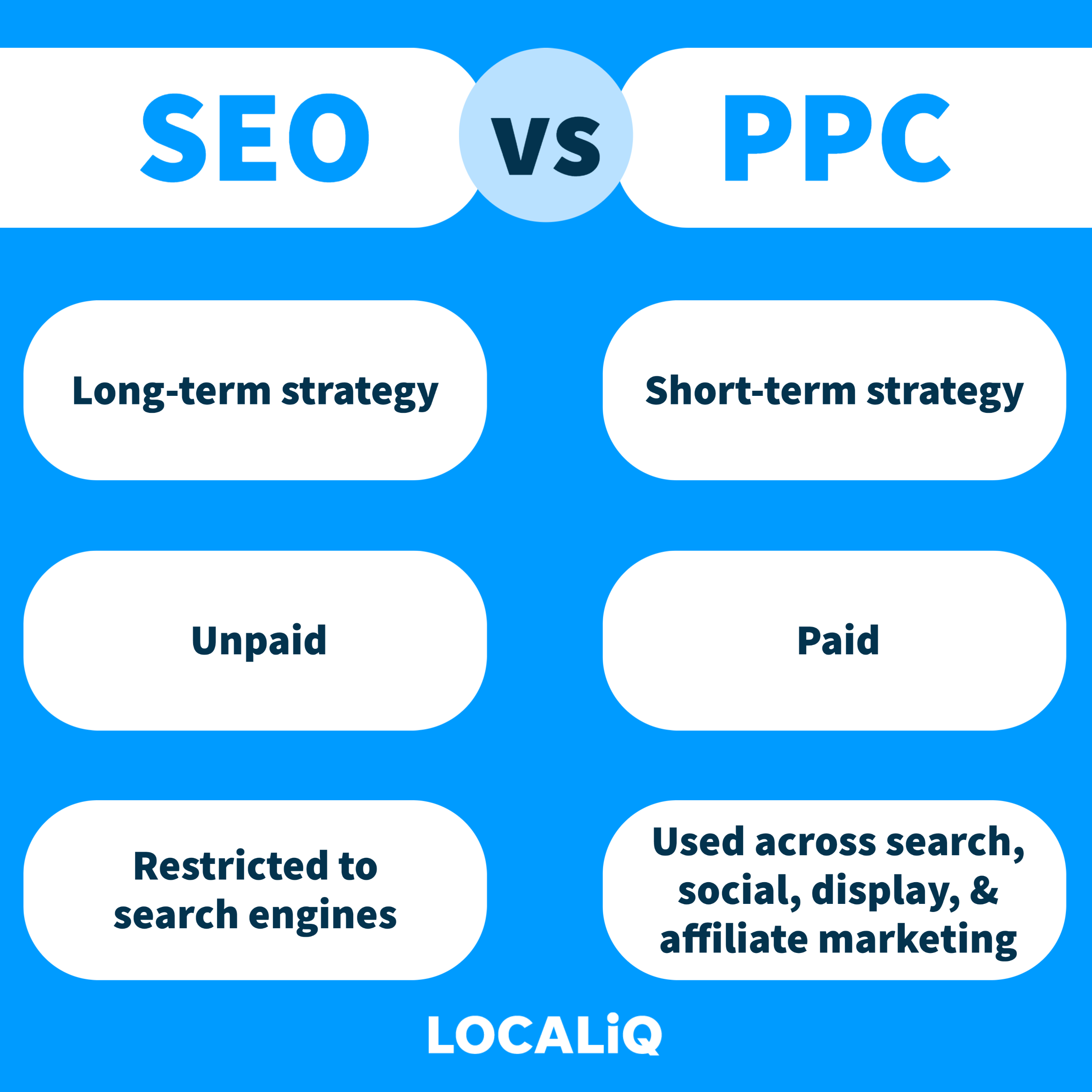
Understanding SEO and PPC in Marketing
In today’s digital landscape, businesses are constantly searching for ways to improve their online visibility and drive more traffic to their websites. Two popular strategies that companies use to achieve these goals are Search Engine Optimization (SEO) and Pay-Per-Click (PPC) advertising. While both SEO and PPC aim to increase website traffic, they achieve this through different approaches and tactics. In this article, we will explore what SEO and PPC are, how they work, and the benefits and differences of each method.
What is SEO
Search Engine Optimization, or SEO, is the practice of optimizing a website to rank higher in organic search engine results. When users search for specific keywords or phrases, search engines like Google strive to provide the most relevant and authoritative websites on the search engine results pages (SERPs). SEO techniques help improve a website’s visibility on these SERPs, making it more likely to appear on the first page of search results and attract organic traffic.
To achieve higher rankings in search results, SEO encompasses various strategies and tactics such as keyword research, on-page optimization, technical optimization, link building, and content creation. By optimizing different aspects of a website, businesses can enhance their online presence and increase their chances of being discovered by potential customers.
One of the primary benefits of SEO is its long-term impact. Unlike PPC, which requires ongoing advertising spend, SEO efforts can have long-lasting effects, driving sustained organic traffic to a website over time. Additionally, higher organic rankings are seen as more credible and trustworthy by users, resulting in higher click-through rates and improved brand reputation.
The Power of PPC
Pay-Per-Click, or PPC, is an online advertising model where advertisers pay each time a user clicks on their ad. Unlike SEO, which focuses on organic search rankings, PPC operates on a bidding system, where businesses bid on specific keywords to display their ads alongside search results or on other advertising platforms like social media.
PPC campaigns are managed through advertising platforms such as Google Ads, Bing Ads, or social media platforms like Facebook Ads. Advertisers set a budget, bid on keywords, create compelling ad copy and landing pages, and monitor and optimize their campaigns to drive qualified traffic to their websites.
One of the main benefits of PPC is its ability to deliver immediate results. With PPC, businesses can quickly increase their website’s visibility and drive targeted traffic, even in highly competitive industries. Moreover, PPC offers precise targeting options, allowing advertisers to reach specific audiences based on demographics, interests, behaviors, and search queries.
The Benefits of SEO and PPC
While SEO and PPC differ in approach, they both offer unique benefits to businesses looking to improve their online presence and attract more customers. Here are some of the key advantages of both strategies:
Benefits of SEO
1. Long-term Results: SEO efforts can yield long-lasting results, driving sustained organic traffic over time.
2. Credibility and Trust: High organic rankings enhance brand credibility and trustworthiness.
3. Cost-Effective: Organic listings on search engines are free, making SEO a cost-effective strategy once initial optimization is complete.
4. Increased Website Traffic: Higher rankings result in increased website traffic and potential customer interactions.
5. Targeted Optimization: SEO allows businesses to optimize their website for specific target markets, industries, or demographics.
Benefits of PPC
1. Immediate Visibility: PPC ads can provide immediate visibility and drive qualified traffic to a website.
2. Precise Targeting: Advertisers can target specific audiences based on demographics, interests, behaviors, and search queries.
3. Measurable Results: PPC campaigns offer detailed analytics, allowing businesses to track and measure the success of their ads.
4. Cost Control: Advertisers have control over their budget and can set daily or monthly spending limits.
5. Testing and Optimization: PPC campaigns can be continuously tested, optimized, and tailored based on performance and user behavior.
SEO vs. PPC: Which is Right for Your Business?
While both SEO and PPC have their advantages, the decision on which strategy to prioritize depends on various factors such as business goals, budget, timeline, and target audience. Here are a few considerations to help guide your decision:
1. Cost and Budget
SEO and PPC have different cost implications. SEO requires time and resources for research, optimization, and content creation, while PPC involves ad spend to display ads. Consider your budget and long-term cost effectiveness when deciding which approach aligns best with your resources.
2. Timeline and Objectives
If you need immediate visibility and quick results, PPC may be the way to go. SEO, on the other hand, requires patience and time to see significant improvements in organic rankings. Consider your business goals and desired timeline when deciding on the timeframe for your marketing efforts.
3. Target Audience and Competitive Landscape
Analyze your target audience and the competitive landscape of your industry. Determine whether your target audience is more likely to engage with organic search results or click on paid ads. Additionally, assess the level of competition in your industry and the viability of achieving organic rankings.
4. Integrating SEO and PPC
While SEO and PPC are often discussed separately, integrating these strategies can yield powerful results. By leveraging SEO to improve organic rankings and using PPC to drive immediate traffic and test keyword strategies, businesses can create a comprehensive digital marketing approach.
Incorporating SEO and PPC in Your Marketing Strategy
Effective online marketing requires a holistic approach that incorporates both SEO and PPC techniques. Businesses can utilize the strengths of each strategy to maximize their online visibility and attract the right audience. Here are a few tips on how to incorporate SEO and PPC in your marketing strategy:
1. Conduct Keyword Research
Identify relevant keywords and phrases that align with your business offerings. Use keyword research tools to determine search volume, competition, and potential traffic. Incorporate these keywords into your website content and PPC ad campaigns.
2. Optimize Your Website
Implement on-page SEO techniques such as optimizing meta tags, headings, page titles, and URLs. Improve website load speed, mobile responsiveness, and user experience. Create high-quality, keyword-rich content that appeals to both users and search engines.
3. Develop a PPC Strategy
Create targeted PPC campaigns that align with your business goals and target audience. Set a budget, define audience targeting criteria, develop compelling ad copy, and optimize your campaigns based on performance data.
4. Track and Analyze Performance
Regularly monitor and analyze the performance of your SEO and PPC efforts. Use analytics tools to track website traffic, keyword rankings, ad impressions, click-through rates, and conversion rates. Make data-driven decisions to continuously optimize your strategies.
Conclusion
SEO and PPC are valuable marketing strategies that can significantly impact a business’s online visibility and success. Understanding the differences between these approaches and how they can work together enables businesses to make informed decisions when developing their digital marketing strategies. By incorporating SEO and PPC techniques effectively, businesses can attract the right audience, increase website traffic, and achieve their marketing objectives.
Key Takeaways: What is SEO and PPC in Marketing?
- SEO stands for Search Engine Optimization and PPC stands for Pay-Per-Click.
- SEO is about optimizing a website to rank higher in search engine results organically.
- PPC is an advertising model where advertisers pay for each click on their ads.
- Both SEO and PPC are important for digital marketing strategies.
- SEO focuses on improving organic visibility, while PPC allows advertisers to gain immediate visibility through paid ads.
Frequently Asked Questions
In the world of marketing, SEO and PPC are two key strategies that can boost your online presence and drive traffic to your website. Here are some common questions people have about SEO and PPC in marketing.
1. How does SEO help with marketing?
SEO, or Search Engine Optimization, helps improve your website’s visibility on search engine results pages. By optimizing your website’s content, design, and structure, you can increase your chances of appearing higher in search rankings. This means more people are likely to discover your website and click on it, driving organic traffic. SEO also helps enhance the user experience on your site, making it more user-friendly and intuitive.
With effective SEO strategies, you can attract targeted traffic to your website, increase brand awareness, and build credibility. It is a long-term investment that can generate sustainable results and improve your overall marketing efforts.
2. What is PPC in marketing?
PPC, or Pay-Per-Click, is an online advertising model where advertisers pay a fee each time their ad is clicked. It is a way to buy visits to your website rather than earning them organically. PPC campaigns are usually run through platforms like Google Ads or Bing Ads, where advertisers bid on relevant keywords to display their ads on search engine results pages or other websites.
PPC advertising can be a powerful marketing tool as it allows you to target specific audiences and control your ad spend. It offers instant visibility and immediate results, driving traffic to your website and increasing conversions. However, it is important to carefully plan and optimize your PPC campaigns to ensure a positive return on investment.
3. Are SEO and PPC mutually exclusive?
No, SEO and PPC are not mutually exclusive. In fact, they can work together to maximize the impact of your marketing efforts. While SEO focuses on improving your organic search rankings, PPC can provide immediate visibility in search results. Using both strategies simultaneously can help you cover more ground and reach a wider audience.
For example, when you’re in the early stages of optimizing your website for SEO, running PPC ads can help drive traffic and generate leads. Additionally, integrating PPC data into your SEO strategy can provide valuable insights into keyword performance and audience behavior, helping you refine your SEO efforts for better results.
4. Which is better for marketing: SEO or PPC?
The answer to this question depends on your specific goals and budget. SEO and PPC have their own advantages and can be effective marketing strategies in different scenarios.
If you are looking for long-term, sustainable results, then investing in SEO is crucial. It helps improve your website’s organic visibility, attract targeted traffic, and build authority in your industry. However, SEO takes time and effort to yield significant results.
On the other hand, PPC provides instant visibility and allows you to reach a targeted audience quickly. It is particularly useful when you want to promote a new product or service, run time-sensitive campaigns, or compete for competitive keywords. However, PPC can be costlier than SEO if not managed properly.
5. Can SEO and PPC complement each other?
Absolutely! SEO and PPC can work hand in hand to create a comprehensive and effective marketing strategy. By combining the two, you can maximize your online visibility and improve overall performance.
For example, using PPC data, you can identify the best performing keywords and incorporate them into your SEO strategy. Conversely, SEO can help you optimize your landing pages for better quality scores and ad relevancy in PPC campaigns.
Moreover, when your website appears in both organic search results and paid ads, it reinforces your brand presence and increases the chances of attracting clicks and conversions. By leveraging the strengths of both SEO and PPC, you can achieve better results and increase your return on investment.
SEO vs PPC – Which One Should You Invest In First?
Summary
SEO and PPC are two important strategies in marketing. SEO helps your website rank higher in search results, while PPC allows you to advertise on search engines.
SEO involves optimizing your website with relevant keywords and improving its overall performance. It helps increase organic traffic and build credibility for your business.
On the other hand, PPC is a paid advertising method where you bid for ad placements on search engine results pages. It provides instant visibility and allows you to reach your target audience faster.
Both SEO and PPC have their advantages and can work together to maximize your marketing efforts. It’s important to understand how these strategies work and how they can benefit your business. So keep learning and exploring new ways to improve your marketing skills!
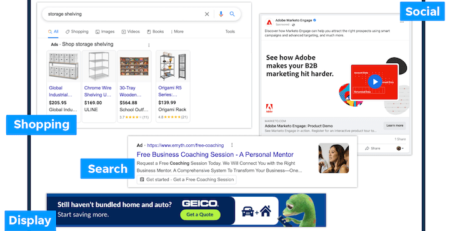
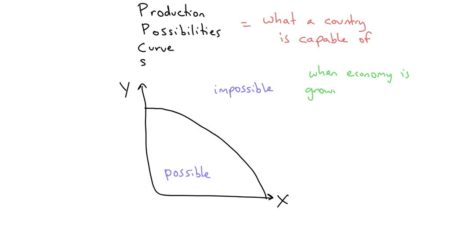

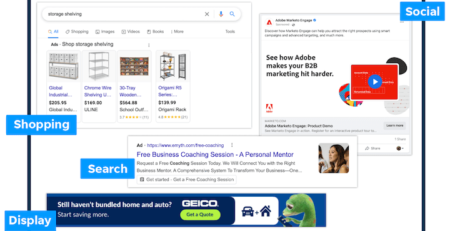
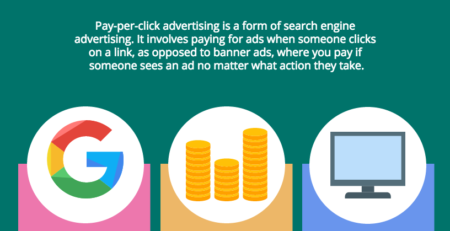
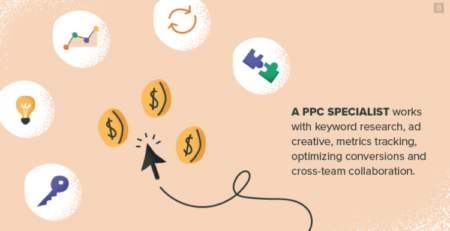
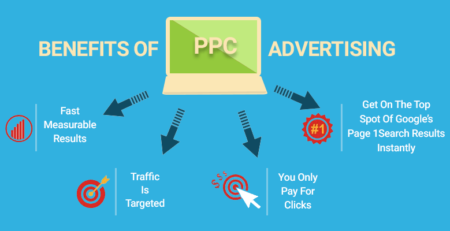
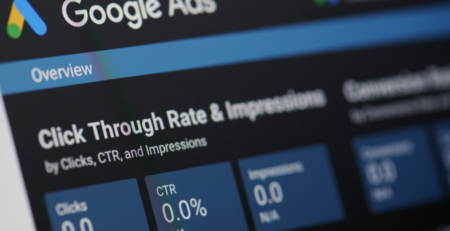
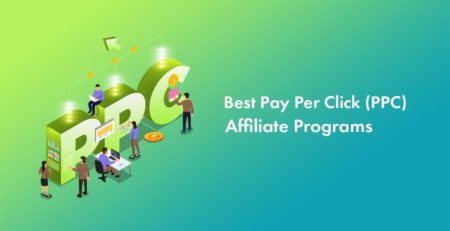
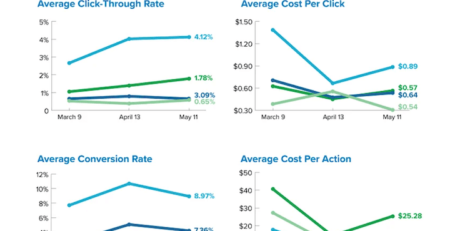
Leave a Reply